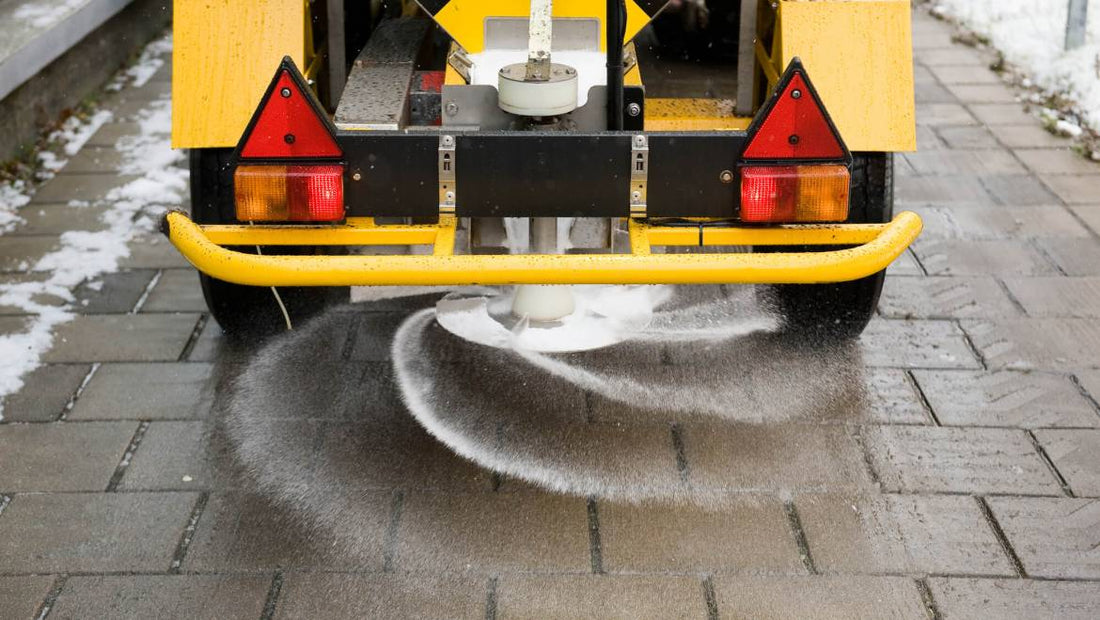Who says winter says snow and therefore salting of the roads. Indeed, to allow us to drive with complete peace of mind and thus avoid accidents, municipalities place salt on the roads. Which guarantees motorists better grip. However, this is not safe for vehicles.
We tell you everything you need to know about the link between road salting and car corrosion as well as the solutions to avoid too much damage to your vehicle.
WINTER ROAD SALTING: WHY IS IT BAD FOR YOUR VEHICLE?
When the first snowflakes arrive, some difficulties may be felt on the roads. To allow people who wish to continue to travel, municipalities then set up road salting operations . This can be done preventively or curatively. In both cases, the objective is the same: to reduce the number of accidents by accelerating the melting of snow and avoiding the formation of patches of ice.
However, you are aware that salt can be very virulent, attacking certain materials quickly and significantly. This is the case for your car which may see its bodywork damaged by salt . But not only !
Because salt is also the enemy of all elements that are close to the road . We think of the rim, the underbody, the brakes and all the metal parts located underneath the vehicle. The problem being that, unlike the bodywork, this degradation can be done completely invisible.
It is therefore necessary to observe the condition of your vehicle regularly and maintain it as often as possible.
NOTHING BETTER THAN WATER CLEANING TO PREVENT CORROSION OF YOUR CAR CHASSIS
Ideally, you should clean your vehicle after driving on a salty road . It can be restrictive and time-consuming, it’s true. However, leaving salt on your vehicle can cause serious damage and force you to pay a repair bill, which is also very high.
So, if you know that preventive salting of the road you are taking is in place, allow some time before returning home to clean your vehicle with a high-pressure jet or garden hose.
The best thing is to go to a washing center with a chassis washing program . Indeed, a law prohibits washing your vehicle at home in order to avoid discharging wastewater and/or harmful residues into the sewer network. Only dry washing is allowed to clean your car at home, but it is not the most practical way to remove salt.
So, set aside some time before each return home to stop at a car wash. Your car will thank you.
HOW TO PROPERLY CLEAN YOUR CAR AFTER DRIVING ON A SALTY ROAD?
As we have indicated, choose an auto center near you with an undercarriage cleaning program . This allows you to thoroughly clean the underside of your vehicle and therefore prevent corrosion of the brakes and metal parts located in this location.
If the auto center you usually go to does not have this type of program, you will need to use a classic cleaning program. or use a garden hose . The idea is to focus on the parts most exposed to salt in order to remove all traces of sodium chloride particles, responsible for the degradation of the equipment.
After having focused on the different elements of your vehicle, do not leave immediately. We advise you, in fact, to equip yourself with a bodywork wax that you can apply to your entire vehicle. This type of product is important in winter to protect your machine over the long term.
Don't forget to bring snow chains or socks (obligatory if you ride in the mountains). Indeed, if you do not have snow tires or 4-season tires, installing this type of equipment ensures good road holding even in the event of snow or ice.
As such, please note that we have developed high-quality INPI-patented technology in the form of an over-tire that attaches easily and quickly to your tires. Much simpler to install than traditional socks or chains, our equipment allows you, as a bonus, to drive on dry roads for hundreds of kilometers, if necessary.
You want to know more ? Contact us and benefit from free delivery as well as a 2-year warranty without waiting.
